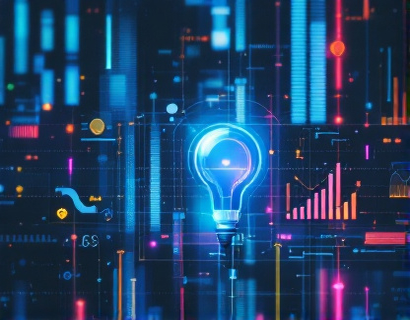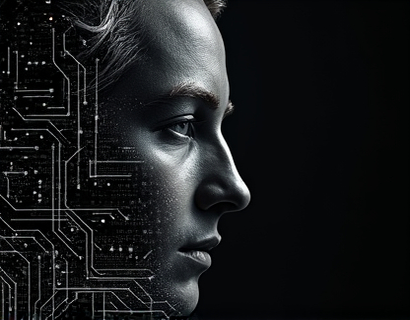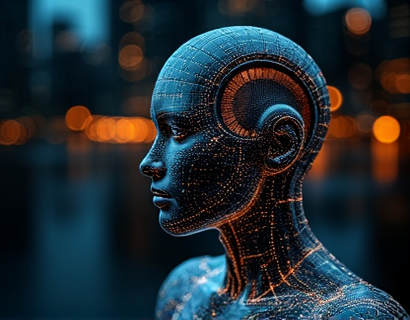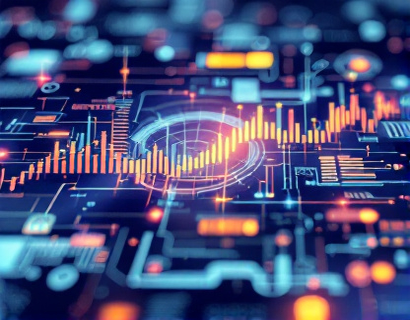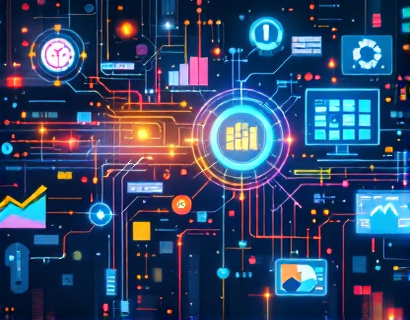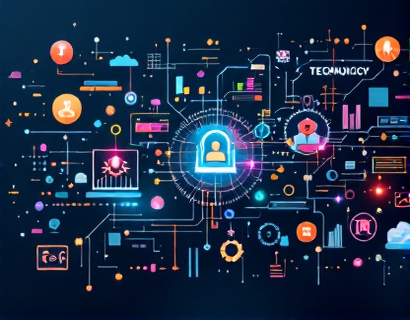Revolutionizing Digital Experiences: The Synergy of Crypto and AI
The intersection of cryptocurrency and artificial intelligence (AI) is ushering in a new era of digital transformation, redefining business operations and enhancing user experiences across various industries. This fusion of technologies is not just a trend but a fundamental shift in how we approach digital solutions. As leaders in the tech space, embracing this synergy is crucial for staying competitive and innovative.
The blockchain, the underlying technology of cryptocurrency, offers a decentralized, secure, and transparent way to conduct transactions and manage data. When combined with AI, which excels in processing vast amounts of data to uncover patterns and make predictions, the potential for innovation becomes immense. This article delves into the ways these technologies are transforming digital strategies and providing next-generation solutions.
Enhancing Security and Trust
One of the most significant advantages of integrating blockchain with AI is the enhancement of security and trust in digital interactions. Blockchain's immutable ledger ensures that once data is recorded, it cannot be altered without consensus from the network. This feature is particularly valuable in AI applications where data integrity is paramount. For instance, in supply chain management, AI can track products from origin to destination, while blockchain ensures that each step is verifiable and tamper-proof. This combination minimizes fraud and increases consumer trust.
Moreover, smart contracts on the blockchain can automate and enforce contractual obligations with precision. When paired with AI, these smart contracts can adapt to changing conditions and execute actions based on real-time data analysis. This synergy not only streamlines processes but also reduces the risk of human error and manipulation.
Optimizing User Experiences
AI-driven personalization is already a cornerstone of modern digital experiences, but when blockchain is integrated, it adds a layer of privacy and control for users. Blockchain-based identity management systems allow users to own and manage their digital identities securely. This means that AI can provide highly personalized recommendations and services without compromising user privacy. Users can choose what data to share and with whom, empowering them in the digital landscape.
Furthermore, blockchain can ensure that AI-driven content and advertisements are authentic and not manipulated. By verifying the source and integrity of content, blockchain helps maintain the quality and relevance of user experiences. This transparency builds trust and enhances user satisfaction, leading to more engaging and loyal customer bases.
Innovative Financial Solutions
In the realm of finance, the combination of blockchain and AI is revolutionizing how we approach transactions, risk management, and customer service. Decentralized finance (DeFi) platforms leverage blockchain for peer-to-peer transactions without intermediaries, while AI algorithms optimize trading strategies and risk assessments. This synergy enables faster, more efficient, and cost-effective financial services.
For example, AI-powered chatbots on blockchain-based platforms can provide 24/7 customer support, handling queries and transactions with high accuracy and speed. Smart contracts can automate complex financial processes such as loan approvals and insurance claims, reducing the need for manual intervention and minimizing fraud.
Supply Chain and Logistics
The supply chain industry stands to benefit greatly from the integration of blockchain and AI. Blockchain provides a transparent and immutable record of every transaction and movement within the supply chain, while AI can analyze this data to predict demand, optimize inventory, and detect anomalies. This combination enhances efficiency, reduces costs, and improves overall supply chain resilience.
AI-driven predictive analytics can forecast market trends and consumer behavior, allowing businesses to adjust their supply chain strategies proactively. Blockchain ensures that all stakeholders have access to the same real-time data, fostering collaboration and trust among partners. This transparency also helps in quickly identifying and addressing issues such as delays or quality concerns.
Healthcare Innovations
In healthcare, the fusion of blockchain and AI is transforming patient care and data management. Blockchain can secure and decentralize patient records, ensuring that sensitive information is protected and easily accessible to authorized parties. AI algorithms can analyze vast amounts of medical data to identify patterns, predict disease outbreaks, and personalize treatment plans.
For instance, AI-powered diagnostic tools can analyze medical images and patient data to assist doctors in making accurate diagnoses. Blockchain ensures that these data sources are secure and that patients have control over their own health information. This not only improves the quality of care but also enhances patient trust and satisfaction.
Challenges and Considerations
While the potential benefits are significant, there are challenges to consider when integrating blockchain and AI. Scalability remains a key issue, as both technologies require substantial computational resources. Ensuring that blockchain networks can handle the load of AI-driven processes without compromising performance is crucial. Additionally, regulatory frameworks are still evolving, and compliance can be complex. Organizations must navigate these regulatory landscapes carefully to avoid legal pitfalls.
Another consideration is the need for skilled professionals who can develop and maintain these integrated systems. The demand for experts in both blockchain and AI is growing, and organizations must invest in training and hiring to build capable teams. Finally, the ethical implications of AI, such as bias and transparency, must be addressed to ensure that these technologies are used responsibly.
Future Outlook
The future of digital experiences is increasingly intertwined with blockchain and AI. As these technologies continue to mature, we can expect even more innovative applications across various sectors. The key for leaders is to stay informed and adaptable, embracing the opportunities while addressing the challenges. By doing so, organizations can position themselves at the forefront of the next wave of digital innovation.
In conclusion, the fusion of cryptocurrency and AI is not just a technological advancement but a transformative force that is reshaping the digital world. By leveraging the strengths of both blockchain and AI, businesses can create more secure, efficient, and user-centric solutions. Those who embrace this synergy will be well-equipped to thrive in the rapidly evolving digital landscape.




